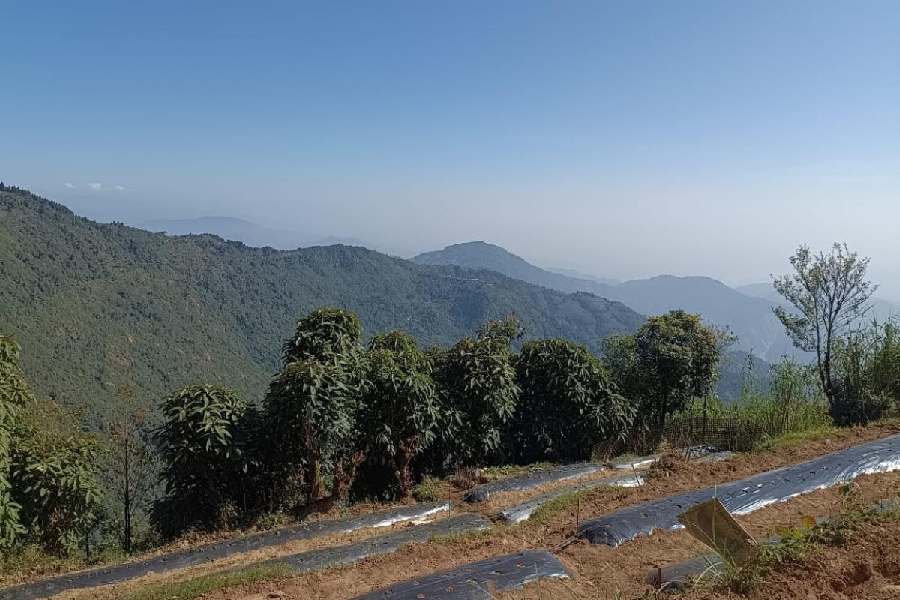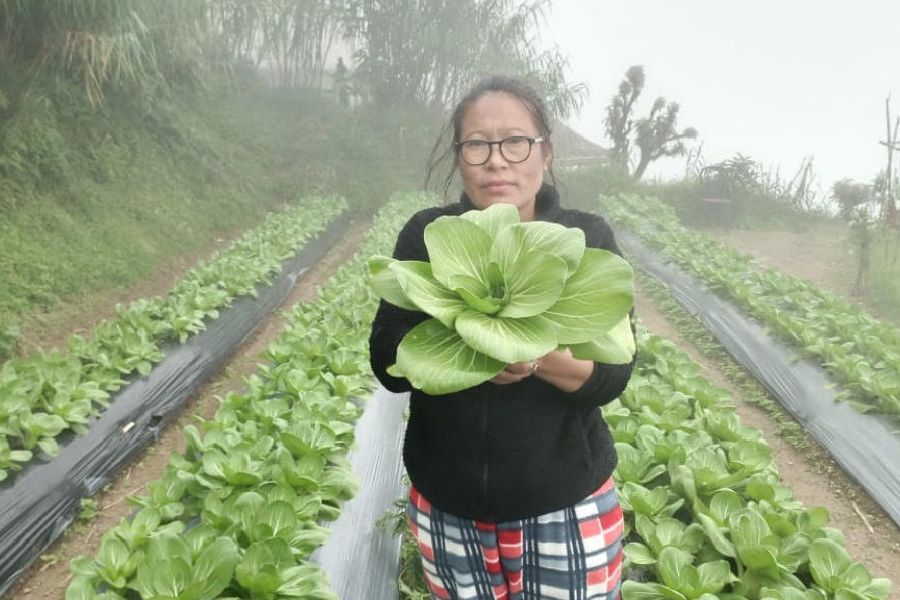Over 500 farmers in Darjeeling and Kalimpong hills have switched to non-traditional crops and are producing a variety of exotic vegetables.
The state food processing and horticulture department, which on one hand has taken the task to improve the yield of the famous oranges of Darjeeling, is on the other hand, encouraging farmers to cultivate these crops which have a steady market and fetch good prices.
“Exotic vegetables like Brussels sprouts, bell peppers, Chinese cabbage and cherry tomatoes are growing in various places of Darjeeling hills. Such crops are giving good returns to farmers, as compared to regular crops,” said Debojit Basak, the district food processing and horticulture officer of Darjeeling.

A stretch earmarked for the cultivation of exotic vegetables in Darjeeling under the directorate of horticulture. The Telegraph
According to him, close to 550 farmers are producing these and some other veggies, which are known to be high-value crops, in around 49 acres of land.
“We are trying to teach them how to grow non-seasonal fruits and vegetables so that they can increase their earnings and encourage others to start cultivating such crops,” added Basak.
According to him, the market for exotic crops across India is increasing day by day and farmers are making more money as the cultivation takes less time.
“There is an estimate that by next year, the market of exotic vegetables in India will reach the US$ 2.1 billion mark,” said the official.
The farmers said they were growing the crops through protected cultivation.
“Protected cultivation is the process of growing crops in a controlled environment. It means that temperature, humidity, light and other factors can be regulated as per the requirement of the crop. This leads to a better yield and a healthier produce,” the official explained.
He said that farmers sell a kilo of Chinese cabbage at Rs 100 to Rs 120 per kilo,
“The weight of a cabbage is around 750 grams and in a 1,000 square feet area, a farmer can harvest 200 to 250 cabbages,” the official.
While Chinese cabbage takes about two months to mature, pak choi is quicker to mature and one can harvest it before the formation of its “head”.
“In a year, pak choi can be harvested five to six times, if cultivated in a planned manner,” said a source.
The crops, sources said, have steady demand in Calcutta and northeast.
Also, shopping malls in and around Siliguri regularly buy such exotic veggies from these farmers for restaurants or customers eager to try out new recipes.
“They are cultivated in greenhouses and net or poly houses and retailed at higher prices than the common vegetables. Other exotic vegetables like cherry tomatoes, broccoli, parsley, celery, lettuce, zucchini, baby corn, asparagus and bell pepper also have a steady demand nowadays,” a source said.
Those associated with the hospitality sector said these vegetables are fast gaining popularity.
These vegetables can be added to multi-cuisine dishes, salads, curries, soups as well as for garnishing to enhance the aesthetic appeal and flavour of the product.
“Nowadays, the visual appeal of a dish is very important to the customer,” said a chef based in Siliguri. “Also, people love trying out exotic vegetables. Awareness is high.”
“These are also rich sources of essential vitamins, minerals, fibres and antioxidants. Thus people are buying these veggies,” said a wholesale vegetable trader in Siliguri.











